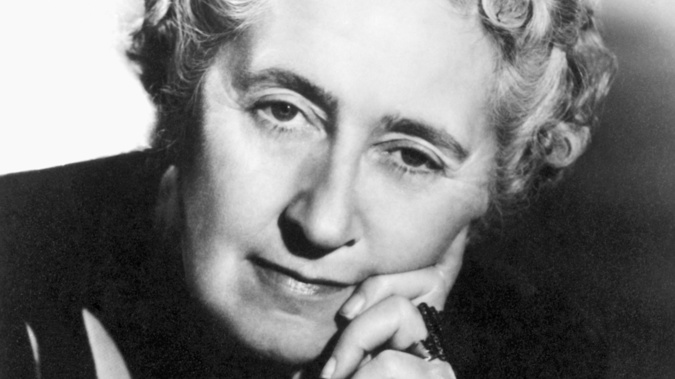
Whose words these are I think I know.
I think you know, too.
These words, with one change, were penned by Robert Frost in 1922, the opening line of one of America's most revered and recited poems, "Stopping by Woods on a Snowy Evening."
And on New Year's Day, they entered the public domain, along with a huge cache of other long-copyrighted material. For the first time, we and anyone else can reproduce Frost's iconic 1923 work without permission or restriction.
The work's four stanzas - spare, musical and haunting - have been memorised by generations, dissected by scholars and beloved by presidents. And now that they are beyond the reach of copyright law, anyone can emblazon them anywhere, from inspirational posters to beach towels. Composers can lyricize them. Teachers can photocopy them. FedEx can paint "Miles to go" on its trucks. "Easy wind and downy flake" would make a good line of dryer sheets and laundry soap. Frost's words belong to the ages and to everyone.
"I think it's a wonderful thing," said Jay Parini, a poet and Frost biographer who teaches at Middlebury College. "I hope it's on mugs and T-shirts everywhere."
The wide usage - even exploitation - of the very poem that Parini credits with inspiring his own career will only help extend Frost's legacy, he said.
Not that a writer who won four Pulitzer Prizes and has a Vermont mountain named for him needs his poetry to be printed on dish towels to cement his reputation. But Frost himself said he hoped to create a few works that would be carved permanently in the public consciousness. One of his landmarks, 1916's "The Road Not Taken," is already in the public domain and reproduced widely in gift shops and anthologies alike. Now, "Stopping by Woods on a Snowy Evening" will get its own boost.
"It will be out there forever now," Parini said.
The poem, with its moody pondering of mortality, was born in a flash of inspiration midway through Frost's life of professional acclaim and personal loss. In the summer of 1922, the poet was struggling with a long poem at his home in Shaftsbury, Vermont. He had been working all night in the kitchen, Parini said, frustrated and thwarted. He crumpled up his efforts and went out onto the porch in time to see the first glow of dawn.
Somehow, the sunrise of a dry summer morning evoked in his tired writer's mind the evening of a snowy winter's day. Almost a "hallucination," he would say later. He turned back to his pen and one of the century's great poems was born "without strain," in Frost's words.
"In 20 minutes, he had drafted the whole thing," Parini said. "Extreme, shocking simplicity, that's where Frost was at his greatest."
The poem was published the following year in his fourth collection, "New Hampshire: A Poem With Notes and Grace Notes," which won him his first Pulitzer. As Frost's stature grew - he was nominated for the Nobel Prize in Literature a reported 31 times - "Stopping" appeared in more and more textbooks. For many English teachers, Frost's craggy face was the Mount Rushmore of American letters, and "The woods are lovely, dark and deep" was taught to millions of young readers.
A presumptuous Dartmouth professor - and seeming Oxford comma zealot - named Edward Lathem added a misguided comma to that line in an authoritative Frost collection in 1969, a marring that would last 30 years.
By the 1960s, Frost had reached the cool evening of his years but was a cultural hot commodity. The poet was a favourite of fellow New Englander John Kennedy, who invited Frost to begin the tradition of a poet reading verse at presidential inaugurations. But even before, Kennedy ended many of his campaign speeches with "And miles to go before I sleep/And miles to go before I sleep."
The poem would have entered the public domain in the late 1990s if not for a push to extend copyright protections for many categories of intellectual property. At the time, most creative works were protected for 75 years. Congress responded to a major lobbying campaign - led largely by the Mickey Mouse-protecting Walt Disney Co. - with 1998's Sonny Bono Copyright Term Extension Act, which retroactively extended copyright protection until Dec. 31, 2018.
Into that 20-year gap fell Superman, "Gone With the Wind" and Gershwin's "Rhapsody in Blue," all of which will now begin stepping into free public use year by year. But first out of the box Tuesday are some long-cloistered jewels from 1923. According to Smithsonia n magazine, they include works by Willa Cather, Arthur Conan Doyle and Zane Grey. And a certain 16-line vignette of a man pausing life and labour to consider the chill stillness yet to come.
Appearing soon on a coffee mug near you.
Take your Radio, Podcasts and Music with you









